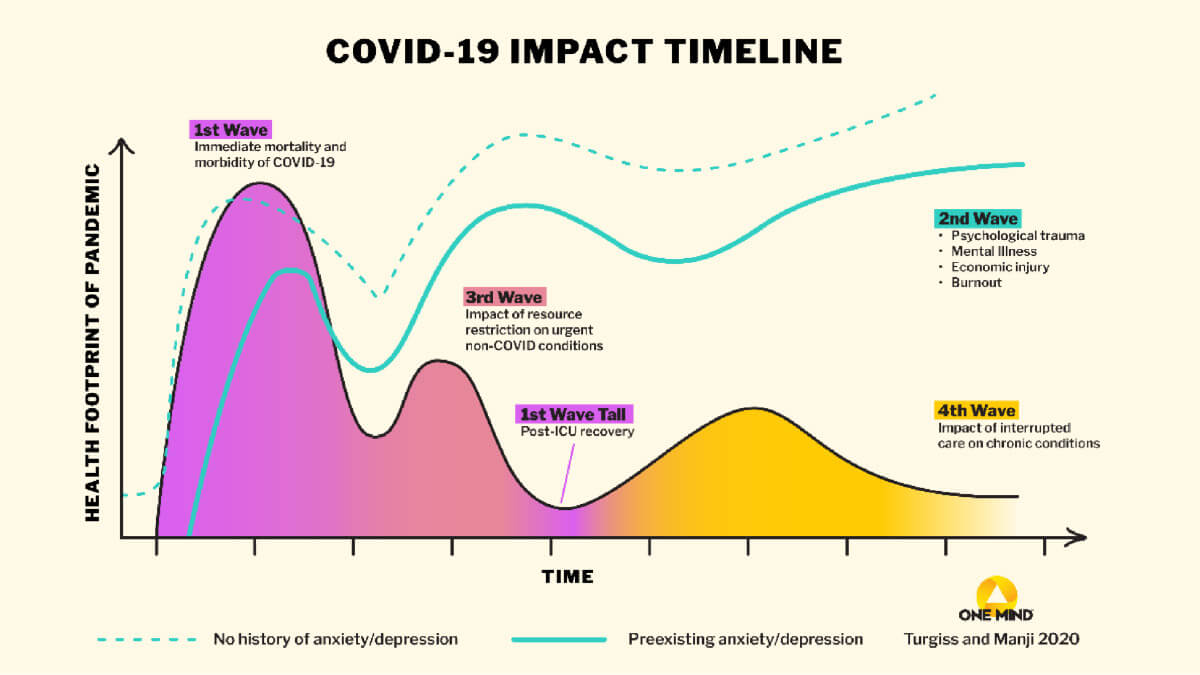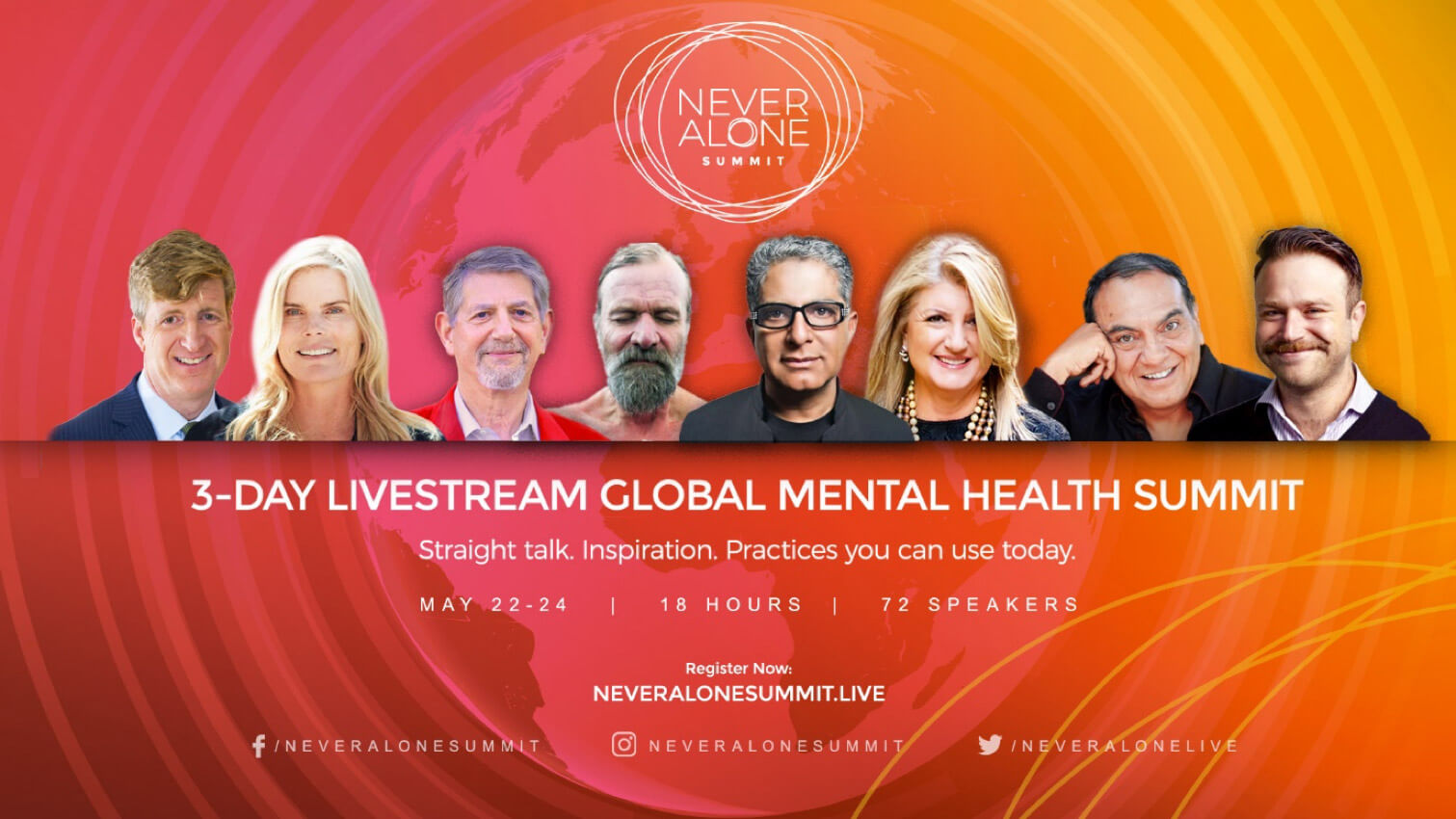By Zach Bush MD, Paul J. Mills, PhD, Rudolph E. Tanzi, PhD, Michelle A. Williams, ScD
and Deepak Chopra™ MD
As our nation dives into sorrow and outrage over another merciless killing of a black man without cause, we must take the opportunity to transform a deep mindset. To achieve this, we will have to collectively shake off deep patterns of subconscious and conscious beliefs and experiences. The frequency of these instances of wrongful deaths and centuries of racially motivated abuses throughout the world creates hopelessness in our minds. For all of the rhetoric and grandstanding of our politicians and special interest groups, we do not see fundamental change happening. This hopelessness breeds violence, resignation, isolation, paranoia, and of course more fear.
Whatever the current crises happen to be—right now it is COVID, racial injustice, police brutality, and street demonstrations—a familiar pattern has been nearly impossible to break. The crisis generates a public outcry, humanitarians face off against reactionaries, and once the worst of the crisis simmers down, things go back to normal. The great hope now, however, is that “normal” will finally be seen for its distorted abnormality.
In our view, this abnormality runs deeper than a pandemic or heart-rending injustice and inequality. A much-needed shift cannot take place until humankind passes through an identity crisis. How we see ourselves is presently through a distorted lens, and our illusions extend to the very basis of Nature herself. Human activity has despoiled Nature without conscience because humans, at our core, feel that this is our right as the planet’s superior life form. The contradiction here is that a truly superior life form would respect all of life, seeing the wonder and fragility of the miracle known as biodiversity.
Like many scientific terms, biodiversity sounds abstract and dry. To bring it home and give it vitality, one has to start with a simple fact: Each of us is as biodiverse as the entire planet. Our DNA was built from viral and bacterial DNA, and the constant communication between the genetic material of these micro-organisms keeps us dynamically alive, protected from disease and an intimate part of the chain of life everywhere.
Sadly, human activity has threatened biodiversity, and the stress we have placed on micro-organisms, even more perhaps than the extinction of species, is coming back to haunt us. The threat of COVID isn’t isolated or unique. Nature’s most powerful urge is to keep life diverse and flourishing from the fundamental level of fungi, viruses, and bacteria, whose DNA outnumbers ours by a factor measured in millions and billions, if not more. Only in the past 30 years has research into the microbiome (the total mass of micro-organisms) brought to light how crucial Nature’s balancing act actually is. Without the bacteria, viruses and fungus that inhabit our bodies, human life would not be possible. As Earth is a symbiotic collection of diverse species cohabitating to give our planet life, so are we, and as with Earth, balance is the key.
The recent science discoveries in the microbiome have been a mind-bending experience as this once unseen world has come alive under our microscopes, through genome sequencing and through advances in computational biology. The notion that human DNA is somehow superior and separate from the DNA of bananas, mice, a cold virus, or mushrooms has toppled. It is humbling to realize that we aren’t at the center of life on earth. We mingle with planetary DNA with every breath, and the jet stream regularly populates the local air with viruses spinning around the globe in a matter of days. The ecosystems around us and within our own bodies team with millions of species of bacteria, fungi, protozoa, and parasites that vastly outnumber us and, humbling to realize, make us viable. We are at once a genetic speck in the vast thriving microcosmos of life, yet also in a position of critical responsibility to help maintain this extraordinary diversity.
The human gut microbiome, which is essential for digesting food, contains trillions of bacteria, outnumbering our human cells by more than 10 to 1, and this is not even considering the far more diverse kingdoms of fungi and protozoa within us. Beyond the confines of the gut, each internal organ, from the liver to the breast, kidneys, and even the brain, is now recognized to depend on unique ecosystems of microorganisms that keep our cells healthy. Over 90% of the work done by enzymes in the human body is done by the microbiome. The same non-human life force works with endocrine cells within the gut to produce over 90% of serotonin, a neurotransmitter necessary for our much-touted human brain to function.
Once you realize that you and the planet’s biodiversity are one, nothing less than a shift of identity follows. An adage from ancient India, “As is the greatest, so is the smallest,” has never been truer. Microbiome diversity is the foundation for health and longevity, while the destruction of this diversity is the beginning of chronic disease of every variety. The adage could be expanded to “As is the outside, so is the inside.” The global microbiome functions as a communication network that actually passes electrical information throughout the cellular matrix to coordinate everything life needs to thrive at the cellular level, not simply nutrition and reproduction but repair and adaptation to changing conditions.
Nature is managing its own identity crisis now. Nature’s fluent communication network cannot be produced by a single species, but it can be threatened by one. At the exact moment in history when our existence is being understood as one thread woven in the tapestry of life as a whole, we are tearing the fabric apart, and all life forms will suffer. To give one instance, every year over 4 billion pounds of glyphosate (the active ingredient in the most commonly used herbicides) is sprayed into our soil, water, air, and foods, sterilizing the microbiome and harming the creatures, including us, that the microbiome nourishes.
Life on earth is at risk for extinction because of our war against diversity. The scale of damage is too frightening to contemplate, much less measure. We must transform now. The victims of this war are standing right in front of us. The soil, wind, and water, the First Nations, African Americans, Hispanics, Asians, and the tide of refugees. The world’s dispossessed and disenfranchised depend on us to emerge from our false assumed identity of superiority over and separateness from the whole of life. Reconciliation can begin today. Train your mind and eye to seek out and cherish diversity in every element of your life.
Breathe and explore a new ecosystem this week. Create and listen to a more diverse community, both within your body and all around you. Plant a seed and a new relationship this week. Get curious and explore what is different from you, so that we can quickly discover what we all share. Life everywhere calls out to be saved. Life everywhere calls out to be loved.


